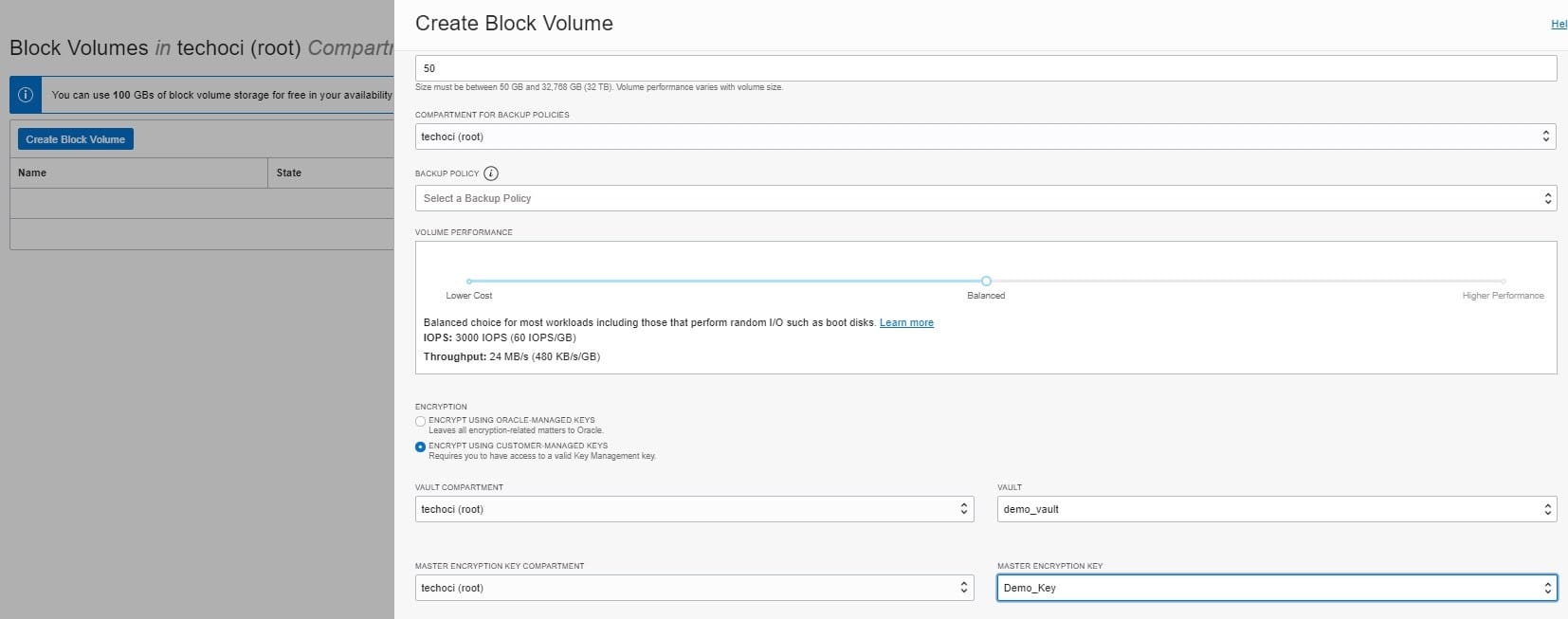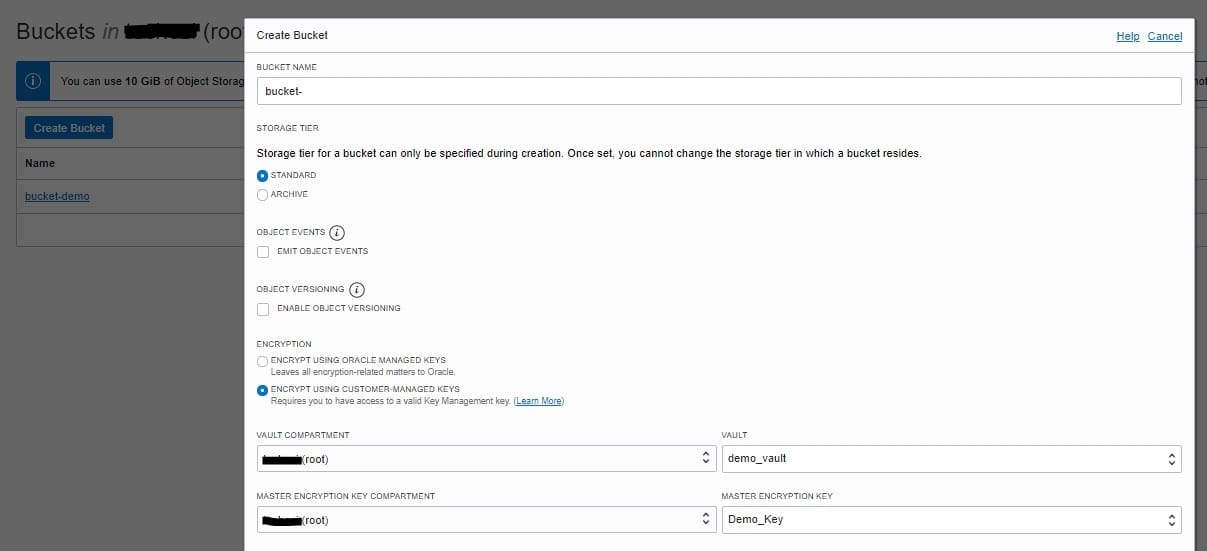Exam Details
Exam Code
:1Z0-997-20Exam Name
:Oracle Cloud Infrastructure 2020 Architect ProfessionalCertification
:Oracle CertificationsVendor
:OracleTotal Questions
:165 Q&AsLast Updated
:Mar 29, 2025
Oracle Oracle Certifications 1Z0-997-20 Questions & Answers
-
Question 61:
An online gaming application is deployed to multiple Availability Domains in the Oracle Cloud Infrastructure (OCI) us-ashburn-1 region. Considering the high volume of traffic that the gaming application handles, the company has hired you to ensure that the data stored by the application is scalable, highly available, and disaster resilient. In the event of failure, the Recovery Time Objective (RTO) and Recovery Point Objective (RPO) must be less than 2 hours.
Which Disaster Recovery strategy should be used to achieve the RTO and RPO requirements in the event of a system failure?
A. Configure hourly block volumes backups using the OCI Command Line Interface (CLI).
B. Create a user defined backup policy with a schedule of generating daily backups for block volumes.
C. Configure hourly block volumes backups through the OCI Storage Gateway service.
D. Create a user defined backup policy with a schedule of generating hourly backups for block volumes.
-
Question 62:
An automobile company wants to deploy their CRM application for Oracle Database on Oracle Cloud Infrastructure (OC1) DB Systems for one of major clients. In compliance with the Business Continuity Program of the client, they need to provide a Recovery Point objective (RPO) of 24 hours and a Recovery time objective (RTO) of 24 hours and Recovery Time Objective (RTO) of 1 hour.
The CRM application should be available oven in me event that an entire on Region is down.
Which approach Is the most suitable and cost effective configuration for this scenario?
A. Deploy a 1 node VM Oracle database in one region and replicate the database to a 1 node VM Oracle database in another region using a manual setup and configuration of Oracle Data Guard.
B. Deploy a 2 node Virtual Machine (VM) Oracle RAC database in one region and replicate the database to a 2 node VM Oracle RAC database in another region using a manual setup and configuration of Oracle Data Guard.
C. Deploy a 1 node VM Oracle database in one region. Manual Configure a Recovery Manager (RMAN) database backup schedule to take hourly database backups. Asynchronously copy the database backups to object storage in another OCI region, If the primary OCI region is unavailable launch a new 1 new VM Database in the other OCI region restore the production database from the backup.
D. Deploy an Autonomous Transaction Processing (Serverless) database in one region and replicate it to an Autonomous Transaction Processing (Serverless) database in another region Oracle GoldenGate.
-
Question 63:
A company has an urgent requirement to migrate 300 TB of data to Oracle Cloud Infrastructure (OCI) In two weeks. Their data center has been recently struck by a massive hurricane and the building has been badly damaged, although still operational. They have a 100 Mbps Internet line but the connection is Intermittent due to the damages caused to the electrical grid.
In this scenario, what is the most effective service to use to migrate the data to OCI given the time constraints?
A. Setup a OCI Storage Gateway to connect your data center and your VCN. Once the connection has been established, upload all data to OCI using OCI Storage Gateway Cloud Sync tool.
B. Setup a hybrid network by launching aIGbpsFastConnect virtual circuit between your data center and OCI. Use OCI Object storage multipart upload tool to automate the migration of your data to OCI.
C. Use multiple OCI Data Transfer Appliances to transfer data to OCI.
D. Upload the data to OCI using OCI Object Storage multipart upload tool.
E. Storage Gateway to connect your data center and your VCN. Once the connection has been established, upload all data to OCI.
-
Question 64:
You are responsible for migrating your on-premises legacy databases on 11.2.0.4 version to Autonomous Transaction Processing - Dedicated (ATP-D) in Oracle Cloud Infrastructure (OCI). As a solution architect, you need to plan your migration approach.
Which three options do you need to implement together to migrate your on-premises databases to OCI?
A. Retain all legacy structures and unsupported features (e.g. legacy LOBs) in the on- premises databases for migration.
B. Use Oracle Data Guard to keep on-premises database always active during migration.
C. Launch Autonomous Transaction Processing - Dedicated database in OCI.
D. Retain changes to Oracle shipped privileges, stored procedures or views in the on- premises databases.
E. Convert on-premises databases to PDB, upgrade to 19c, and encrypt.
F. Use Oracle GoldenGate replication to keep on-premises database online during migration.
-
Question 65:
Your company will soon start moving critical systems Into Oracle Cloud Infrastructure (OCI) platform. These systems will reside in the us-phoenix-1and us-ashburn 1 regions. As part of the migration planning, you are reviewing the company's existing security policies and written guidelines for the OCI platform usage within the company. you have to work with the company managed key.
Which two options ensure compliance with this policy?
A. When you create a new compute instance through OCI console, you use the default options for "configure boot volume" to speed up the process to create this compute instance.
B. When you create a new block volume through OCI console, select Encrypt using Key Management checkbox and use encryption keys generated and stored in OCI Key Management Service.
C. When you create a new compute instance through OCI console, you use the default shape to speed up the process to create this compute instance.
D. When you create a new OCI Object Storage bucket through OCI console, you need to choose "ENCRYPT USING CUSTOMER-MANAGED KEYS" option.
E. You do not need to perform any additional actions because the OCI Block Volume service always encrypts all block volumes, boot volumes, and volume backups at rest by using the Advanced Encryption Standard (AES) algorithm with 256-bit encryption.
-
Question 66:
As an administrator you want to give users of ObjectWriters group full access to bucket Bucket-A and its objects in compartment comp-images. You want users of ObjectWriters to not be able to access or modify properties of any other buckets and its objects in the compartment comp-images.
Select the statement(s) below that will best define your IAM policies.
A. Allow group ObjectWriters to mange buckets in compartment comp- images Allow group ObjectWriters to manage objects in compartment comp-images where target.bucket.name= 'Eucket-A'
B. Allow group ObjectWriters to manage buckets in compartment comp-images where target.bucket.name=' Bucket-A'
C. Allow group ObjectWriters to inspect buckets in compartment comp-images Allow group ObjectWriters to read buckets in compartment comp-images where target.bucket.name=' Bucket-A" Allow group ObjectWriters to manage objects in compartment comp-images where target.bucket.name=' Bucket-A'
D. Allow group ObjectWritexs to read buckets in compartmentcomp-images Allow group ObjectWriters to manage objects in compartment comp- images where target.bucket.name= 'Bucket-A'
-
Question 67:
An eCommerce company is running on Oracle Cloud Infrastructure (OCI) and many compute instances remain unused for the most part of the year except during Black Friday and Christmas. You suggest them to use OCI's
Autoscaling feature and present them a slide to showcase the features of Autoscaling.
Which option below is inaccurate in your presentation to the customer?
A. A cooldown period between Autoscaling events lets the system stabilize at the updated level.
B. When an instance pool scales in, instances are terminated in this order: the number of instances is balanced across Availability Domains, and then balanced across Fault Domains. Finally, within a Fault Domain, the newest instance is terminated first.
C. Autoscaling relies on performance metrics such as CPU utilization that are collected by OCI Monitoring service to trigger an Autoscaling event.
D. Autoscaling requires an instance pool as a pre-requisite so that it can automatically adjust the number of compute instances in an instance pool.
-
Question 68:
You are trying to delete a compartment. The delete operation is falling and you need to troubleshoot the problem.
Which step should NOT be considered when troubleshooting this issue?
A. Verify that there are no policies In the root compartment that reference the compartment you are trying to delete.
B. Verify that you have removed all resources from the compartment.
C. Make sure you have at least one more compartment in your tenancy other than the root compartment.
D. Search for resources in the compartment for each region that your tenancy is subscribed to.
-
Question 69:
A customer is in a process of shifting their web based Sales application from their own data center located in US West to OCI India West (Mumbai) region. They want to do it in a controlled manner and initially only 1% of the traffic will be steered to the servers in OCI. After verification of everything is working as expected, the company is gradually planning to increase the ratio until they are comfortable with fully migrating all traffic to OCI.
Which of the following solution can be used in this situation?
A. OCI DNS and Traffic Management with Geolocation Steering policy
B. OCI DNS and Traffic Management with Failover Steering policy
C. OCI DNS and Traffic Management with Load Balancer Steering policy
D. OCI DNS and OCI Load Balancer Service
-
Question 70:
You are a cloud architect at a financial organization. The development team is tasked with creating a cloud native application to be hosted on Oracle Cloud Infrastructure (OCI). The development team has followed a microservices-based approach and created containerized images of the cloud-native application and pushed them to OCI Registry (OCIR).
How can you deploy a load balanced application to your OCI Container Engine for Kubernetes (OKE) cluster using these images?
A. Create a load balancer using the OCI load balancer service, add the load balancer service IP in the manifest file, add the location of the docker image to the manifest file, and deploy the manifest file.
B. Create a named secret, add the secret to the manifest file, add the location of the docker image to the manifest file, add the service of type LoadBalancer in the manifest file, and deploy the manifest file.
C. Create an auth token, add the auth token to the manifest file, add the location of the docker image to the manifest file, add the service of type LoadBalancer in the manifest file, and deploy the manifest file.
D. Add the location of the docker image to the manifest file, deploy the manifest file. All applications are load-balanced by default in OKE
Related Exams:
1Z0-020
Oracle8i: New Features for Administrators1Z0-023
Architecture and Administration1Z0-024
Performance Tuning1Z0-025
Backup and Recovery1Z0-026
Network Administration1Z0-034
Upgrade Oracle9i/10g OCA to Oracle Database OCP1Z0-036
Managing Oracle9i on Linux1Z0-041
Oracle Database 10g: DBA Assessment1Z0-052
Oracle Database 11g: Administration Workshop I1Z0-053
Oracle Database 11g: Administration II
Tips on How to Prepare for the Exams
Nowadays, the certification exams become more and more important and required by more and more enterprises when applying for a job. But how to prepare for the exam effectively? How to prepare for the exam in a short time with less efforts? How to get a ideal result and how to find the most reliable resources? Here on Vcedump.com, you will find all the answers. Vcedump.com provide not only Oracle exam questions, answers and explanations but also complete assistance on your exam preparation and certification application. If you are confused on your 1Z0-997-20 exam preparations and Oracle certification application, do not hesitate to visit our Vcedump.com to find your solutions here.

